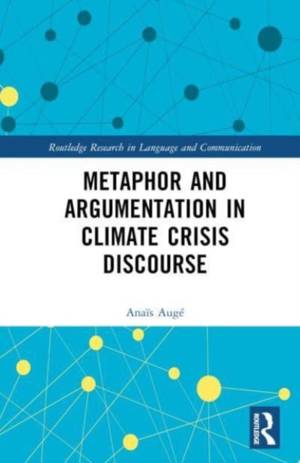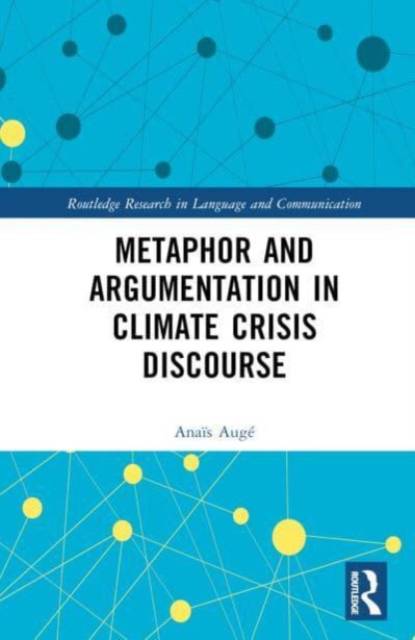
- Afhalen na 1 uur in een winkel met voorraad
- Gratis thuislevering in België vanaf € 30
- Ruim aanbod met 7 miljoen producten
- Afhalen na 1 uur in een winkel met voorraad
- Gratis thuislevering in België vanaf € 30
- Ruim aanbod met 7 miljoen producten
Omschrijving
This volume sheds light on the argumentative role of metaphor in climate change discourse, unpacking the ways in which stakeholders use specific metaphors to influence perceptions of the climate crisis.
While existing research has explored the explanatory function of metaphors in communication on climate change, this book offers an alternative view, one which posits that metaphors can go beyond disseminating scientific observations to promoting biases in the depiction of these observations. Augé analyses oft-used ideas in climate change communication, such as greenwashing, drawn from a wide-ranging corpus spanning media discourse, scientific discourse, NGO communications, political speech, and social media messages in English. The book presents an overview of different arguments conveyed through metaphors around five key themes--climate change mitigation; the evolution of climate change; global and local effects; the significance of climate change in specific countries; and the relationship between climate change and other contemporary social issues. The volume highlights how the complexity of climate change often necessitates the use of metaphor and the value of further research on the argumentative function of metaphor in elucidating its ideological dimensions in climate crisis discourse.
This book will be of interest to scholars in discourse analysis, corpus linguistics, cognitive linguistics, and environmental communication.
Specificaties
Betrokkenen
- Auteur(s):
- Uitgeverij:
Inhoud
- Aantal bladzijden:
- 190
- Taal:
- Engels
- Reeks:
Eigenschappen
- Productcode (EAN):
- 9781032379791
- Verschijningsdatum:
- 28/06/2023
- Uitvoering:
- Hardcover
- Formaat:
- Genaaid
- Afmetingen:
- 152 mm x 229 mm
- Gewicht:
- 435 g

Alleen bij Standaard Boekhandel
Beoordelingen
We publiceren alleen reviews die voldoen aan de voorwaarden voor reviews. Bekijk onze voorwaarden voor reviews.











